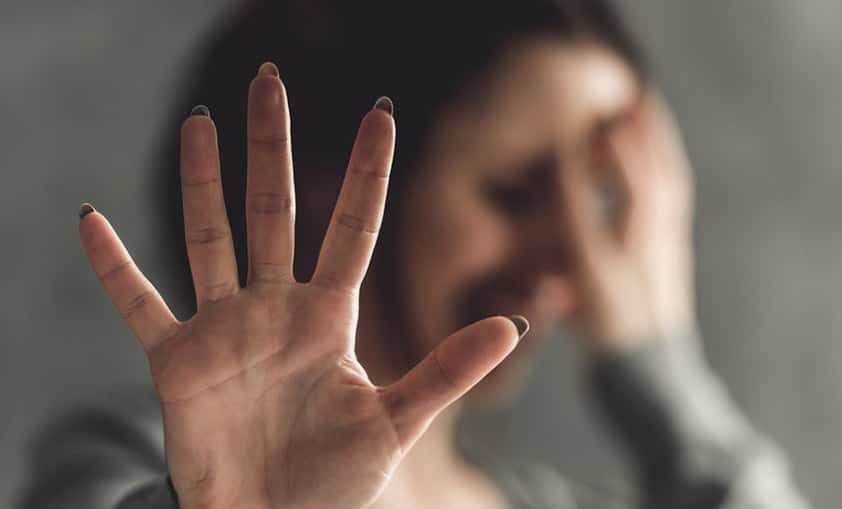There simply aren’t words to express the lasting pain of sexual assault. Contrary to popular belief, sexual assault is not a sensual act; it’s an act of violence. The greatest lie we’ve been told about sexual assault is that is follows a familiar pattern. Picture a dimly lit club, bar, or back alley. A man and a woman meet on shaky moral ground. They chase away their inhibitions with alcohol or drugs. Flirting with each other, they invite disaster.
Stop right there. Sexual assault is not what we’ve been led to believe. To start, 55% of these attacks occur at home. Oftentimes the assailant is someone you know and trust. Even more surprisingly, 10% of rape victims are male.
Take a moment to consider the facts and guard yourself: mind, body and spirit against a violence that claims a new victim every 98 seconds.
Your body is sacred

What is sexual assault? It’s any advance that is unwelcome, uncomfortable, or not asked for. Rape, fondling and forced oral stimulation are all types of sexual violence. These acts are a threat to human dignity because they prioritize use and abuse over cherishing and protecting another.
In Genesis, we’re first introduced to the idea that we are special and sacred beings. “God created man in His own image, in the image of God He created him…” (Genesis 1:27). We were made to mirror God himself. Our bodies and souls are precious to God. The psalmist writes, “I will give thanks to You, for I am fearfully and wonderfully made; wonderful are Your works, And my soul knows it very well,” (Psalms 139:14).
Sexuality is a beautiful gift of communion with another person. It is give and take. It is listen and talk. When we take away the dignity and self gift of sex, the focus changes to self-satisfaction. It borders on domination. Sexual violence is about control. It takes away a person’s right to choose and gravely limits their human dignity.
You have a say

Your body is special. It’s a temple of the holy spirit and you have the say in how it is used. Your right to say NO is invaluable. It can provide safety in uncomfortable situations. Stand by that right and recognize when something feels amiss.
In these situations, don’t hesitate to excuse yourself. Call for help, or reach out to someone who cares. A neighbor, a police officer, a bartender – most people are ready and willing to help at a moment’s notice. Don’t hesitate to make your situation known.
We understand that this is an uncomfortable topic. If you’re struggling with words, try this phrase, “I’m on a date and I’m feeling very uncomfortable. Will you help me?”
Betrayal hits close to home

The topic of sexual violence has been buried for decades. Thankfully, the #metoo movement has recently sparked an important conversation about the right to safety and respect during the dating process. One important aspect to talk about is how victims deal with their assault, in the moment and after.
There are a wide range of normal fear responses that might be triggered by a sexual threat. Fighting back and fleeing are expected, but freezing is an equally valid response. Some people try to make the victim shoulder the blame in these situations, saying that they must have enjoyed the advances. This is simply not true. Victims don’t always say no. They may feel intimidated or terrified to speak up. Silence does not justify assault, and it doesn’t make the victim guilty of encouraging or allowing the act.
Also keep in mind that natural signs of arousal are not synonymous with consent. Many victims of sexual assault feel betrayed by their own bodies because they showed signs of being “turned on”. It’s normal for the body to react to sexual advances by preparing for sexual contact. Signs of arousal absolutely do not mean that the victim enjoyed their experience or willingly consented to it.
There Are No Excuses

There is simply no excuse to justify sexual assault. No one has a right to force themselves on you. You do not need to lighten up, and you do not owe anyone sex. You are entitled to personal safety. It’s a basic right that you are absolutely welcome to defend at all times.
Intoxication is not an invitation for sex nor an excuse for unwanted advances. That being said, alcohol is often used to reduce a victim’s inhibitions in advance of sexual assault. Alcohol is a drug just like any other, and spiking a drink isn’t the only way to incapacitate someone. The drink itself can do that just fine. So know your limits and take precautions when drinking.
Often sexual assault is excused away. You may find yourself thinking “He spent a lot of money on dinner, so I owe him something.” Perhaps the thought that “I led her on, so I should follow through” has crossed your mind. Maybe friends have told you that “boys will be boys”. You may have thought your date is a nice girl and you don’t want to lose her. But these excuses don’t justify sexual violence. They are lies that pollute healthy interactions.
What now?

If you are a victim of sexual assault, you might not know where to turn for healing. You can start by assuring your physical safety and seeking medical attention. Next, be sure to address your mental and spiritual health through counseling. Don’t be afraid to report your assault. There are systems in place to protect you and people who are ready to help. Find out more about healing from sexual violence here.
“The body is often viewed as an object to be used as long as it offers satisfaction, and rejected once it is no longer appealing,” Pope Francis writes in Amoris Laetiria. “Can we really ignore or overlook the continuing forms of domination, arrogance, abuse, sexual perversion and violence that are the product of a warped understanding of sexuality?”



